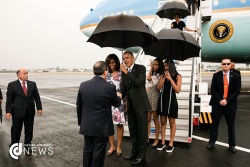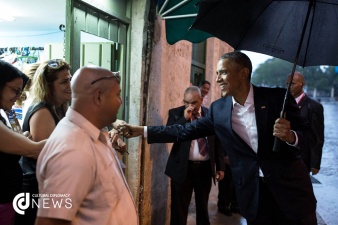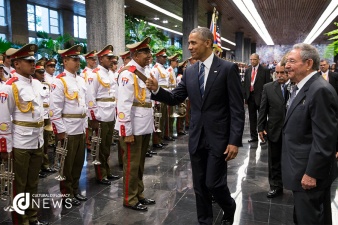Obama Visits Cuba
A Historic Trip Rejected by the Former President
April 06th, 2016
Restoring normal relations between the U.S. and Cuba seemed impossible for decades. This is the first time a sitting U.S. president to visit the Communist country since almost 90 years. The former Cold War enemies are still representing two different systems but quoting Mr. Obama it is the time “moving forwards and not looking backwards”. Despite the possibility of an important progress, not all members of the Communist Party are happy with this turn of events, including the 89 years old, still influential ex-president, Fidel Castro. In the Communist party’s newspaper El Granma he published a full page column with the title “Brother Obama”, and he made it really clear that: “we don’t need the empire to give us anything” so “thank but no thanks”.
The two country’s quarrel goes back to 1960 when the U.S. administration put in force a policy of economic sanctions and diplomatic isolation to overthrow the Castro regime, and the situation was even worsened by the Cuban Missile Crisis. This period was followed by decades of blockade. The former leader Fidel Castro took over presidency in 2008, passing his position to his brother, Raúl Castro, who has said he would leave office in 2018. The first leap toward occurred in 2014, when the heads of states made a deal to restore diplomatic ties and within one year this act was followed by the reopening of the embassies. Now one of the main objective of the visit on the part of the U.S. government was to convince the Cubans that Americans don’t want to demolish the Communist regime anymore and there is no more threat of U.S. interference.
Since Raúl Castro came in power he began to liberalize Cuba’s largely state controlled economy, so citizens are allowed to open business or own property and there is a strong hope that these acts will lead to political reform too. The evidence of this progress is the new online technology center opened by Google, offering fast internet side by side with more access to information. Nevertheless, according to a U.S. act, the embargo may not be lifted until Cuba holds free and fair elections and transitions to a democratic government. However, it is unlikely to happen soon, taking into consideration the strong opposition in the U.S. Congress and in the conservative part of the Communist party. Seeing the two leader’s awkward dance at the news conference or the missed handshake - hug at the end, proved for the public that there is still tension between the states. There are unresolved issues, like the Guantanamo Bay, the Human Rights or the media freedom in Cuba, but for the majority of the population Obama means change. In the two days visit the president of the USA did not meet with Fidel Castro, the question is what influence the former leader has in Cuba’s actual politics? As he said: “Each of us runs the risk of a heart attack hearing these words form a U.S. President”
See more at: http://www.cd-n.org/index.php?obama-visits-cuba-1


